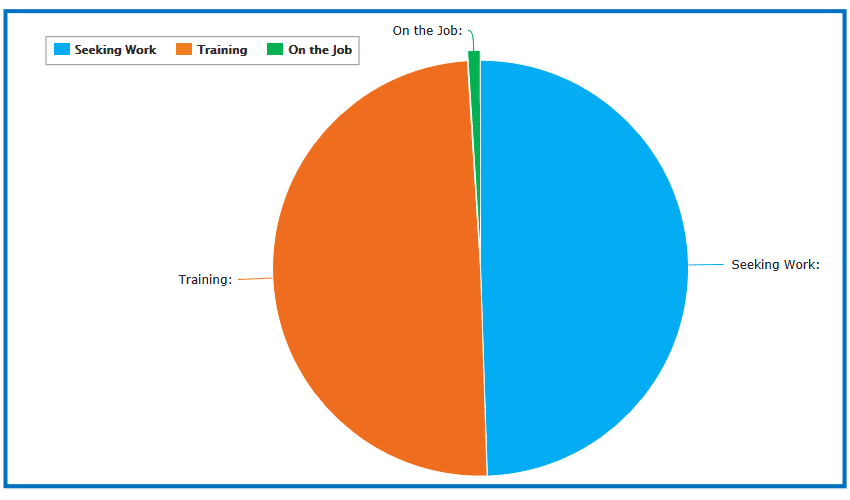Tracking Down Acting Jobs
by Mark Brandon

Improving your talent to obtain work is just as vital as improving your talent to act.
You're an actor now. Great! I'm sure you studied your craft and trained long and hard to get here. But just because you're a terrific actor does not mean acting jobs will fall into your lap. Unfortunately, beginning actors have to do a bit of leg work themselves in order to find those first few acting jobs.
The irony of your situation is that you'll spend more time attempting to work than actually working. In fact, if you made a graph of all the time spent in activities having to do with developing your career, it would look something like this: Imagine a circle--a pie chart, if you will. Picture in your mind the barest slice you could possibly cut out of it. That represents the actual time you spend genuinely working at a paying acting job. (This, of course, presupposes you currently fall within the 90th percentile range of all other actors.) As for the remainder of the pie, you can divide it approximately in half. One of those halves is representative of the time you spend or should spend, in training, refining your skills. The other half is the most critical portion of the pie. It's the time you need to be looking for, auditioning for, or attempting to create more work.

Naturally, your agent is supposed to do a lot of looking for you, but he or she cannot possibly keep track of every possible independent venture that's going on. Your agent's usual casting information is typically limited to the breakdown services, which tend to post the higher budgeted projects. So unless you relish your thin slice of the pie, you have to aggressively track all possible prospects of getting more work.
The Hunter's Strategy
A good place to start hunting, as you've probably already noticed is this very website. If you haven't already discoved it, there's a whole section of Actingbiz dedicated to casting calls. Check it out. I'm sure you'll find casting information on movies, television shows, or commercials that will interest you.
The union offices can be another source. Often, casting notices for small, independent projects are posted there that aren't normally in your agent's breakdowns. In addition, the unions frequently sponsor seminars that feature key industry people such as casting directors and producers. Attending one of the smaller gatherings can be real plus. In a tiny, friendlier circle, you can spend quality time getting to know the kind of people essential in helping you get ahead. And if you're lucky, they just might be currently involved in something you'd be right for.
Presently, there's a terrific one in North America devoted to providing more work for actors. It's called, Backstage West and always lists a substantial number of new casting notices each week. The auditions are predominately in Los Angeles, but there are occasional notices for New York and other major metropolitan areas.
In addition to Backstage West, there are two other periodicals that can be helpful to the alert hunter. Daily Variety and Hollywood Reporter are the most widely read publications in the business.
The main function of these two popular trades lies in providing current, newsworthy items that impact the entire industry, not just acting. Consequently, they list casting notices to only a limited degree. However, they furnish a lot of the most recent development and production information. And that's a good starting point to ferret out potential work leads.
As an example, whenever projects are listed in development (films and TV shows that are in preparation stages) they also list the personnel involved. Since these projects are in the preparatory phase, there's a good chance that not all parts are cast yet.
Look over the list of people associated with the project to see if there's some producer, crew member or actor you've worked with in the past. Or if you're lucky, there might be some friend involved. If either is the case, don't hesitate to send in a picture and resume and attach a very brief cover letter. Keep it friendly and get to the point. For instance, after you've completed the "Hi, how have you been?" part, mention you saw their production announcement and was wondering if there might be something you could come in and read for.
To sum up, this "Hunter's Strategy" has provided you with only five potential sources beside your agent to help you capture more acting opportunities. Be a smart hunter: learn to track down even more acting jobs!









No comments exist yet.
Be the first to post a comment on this page.